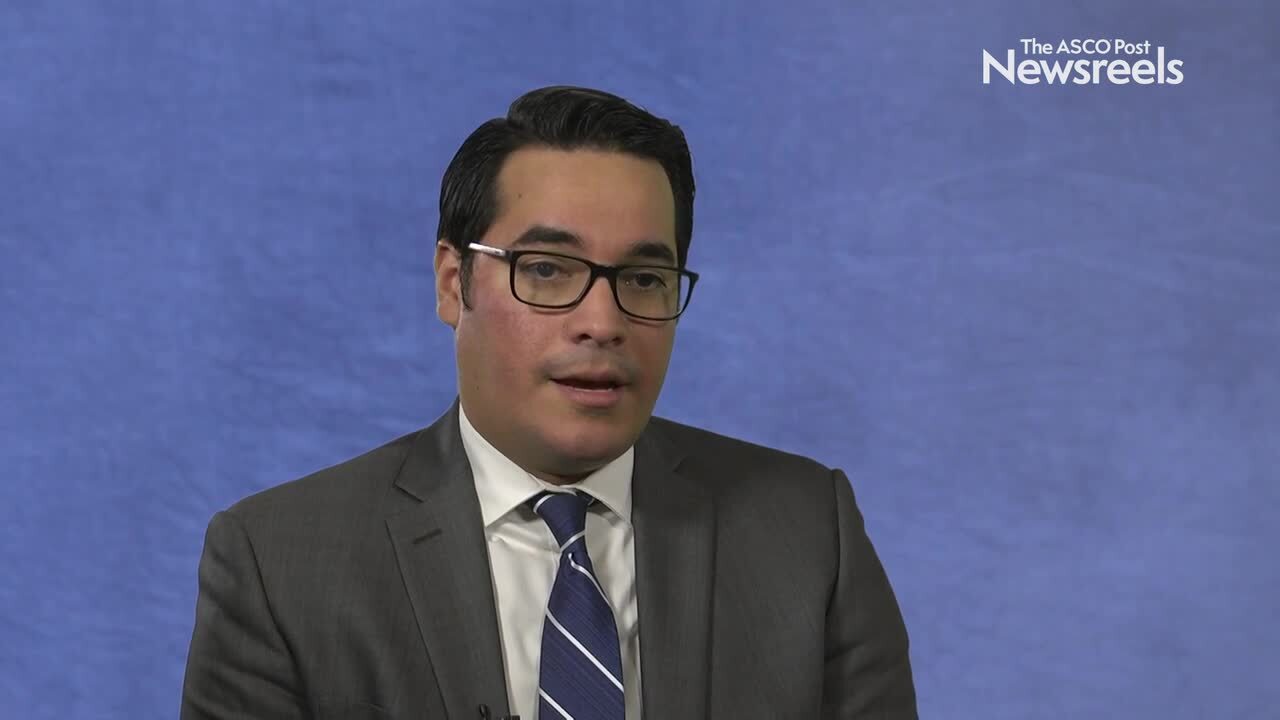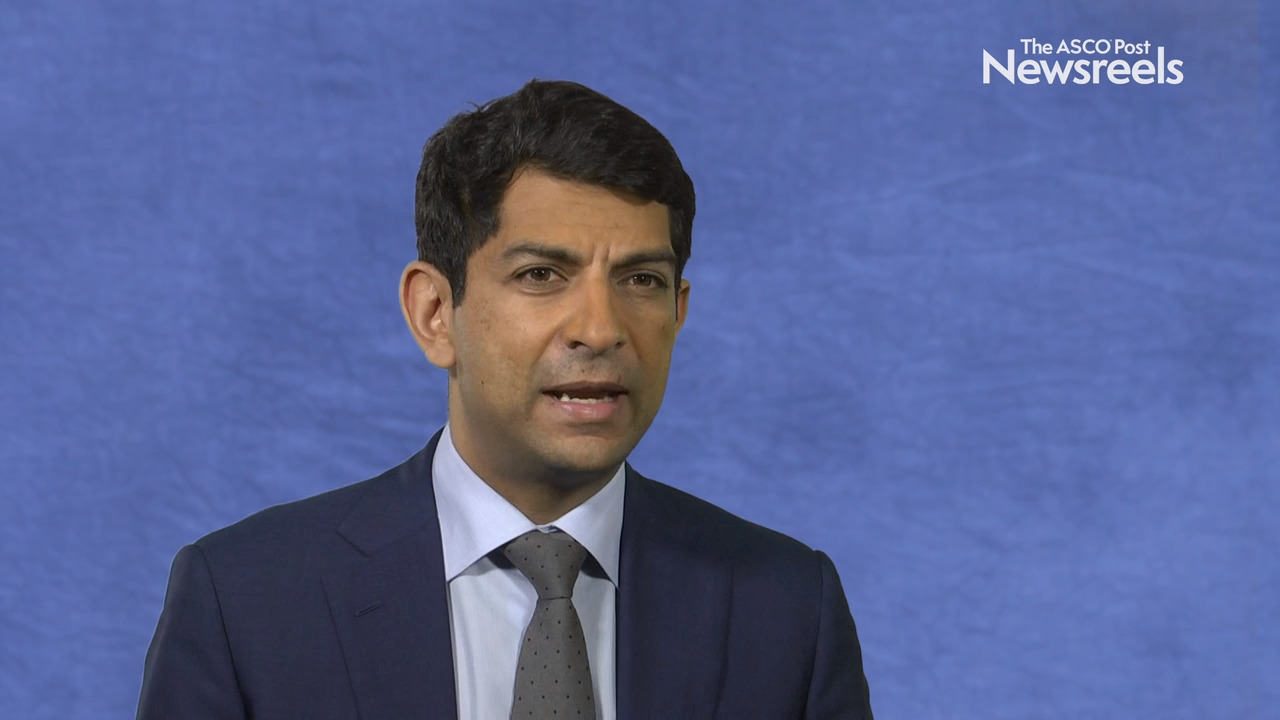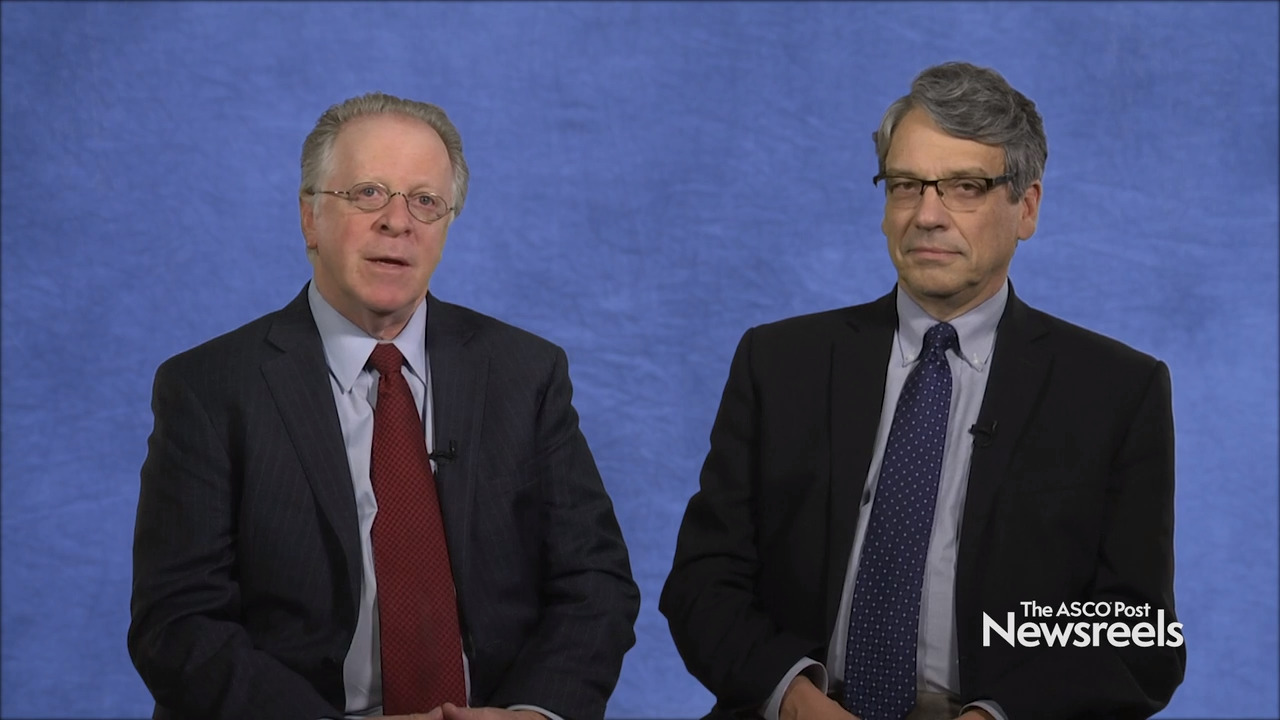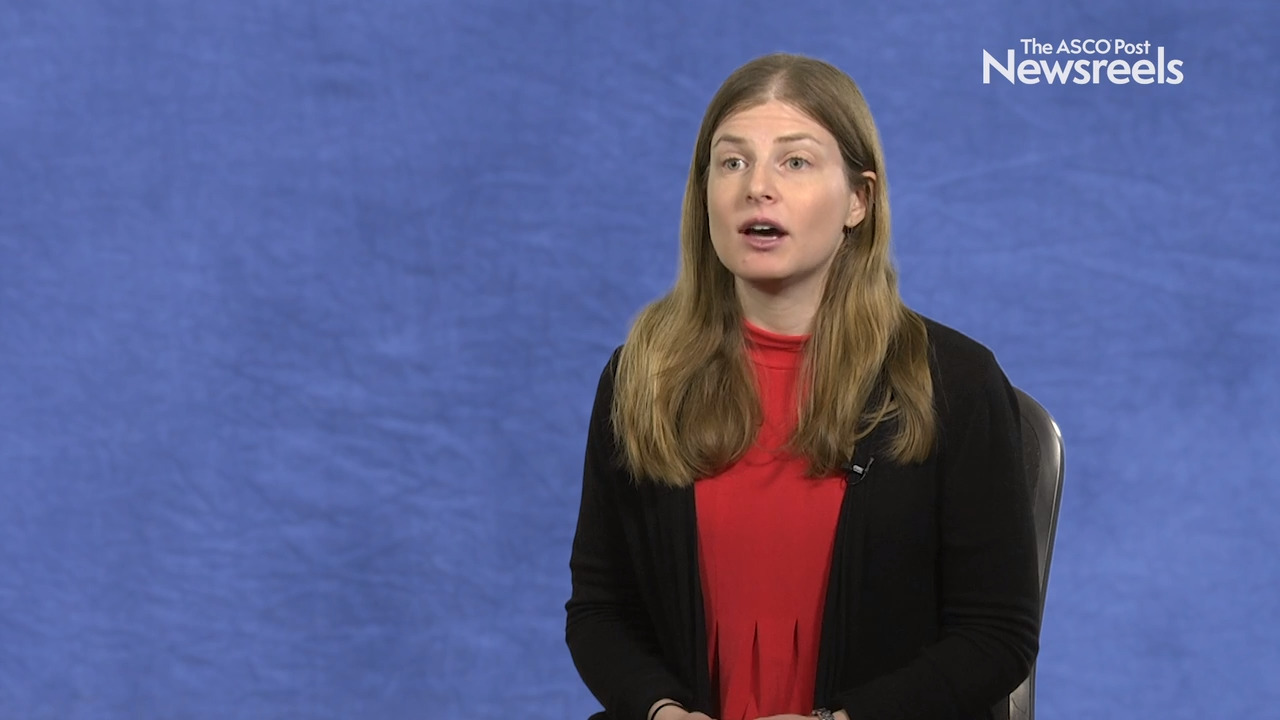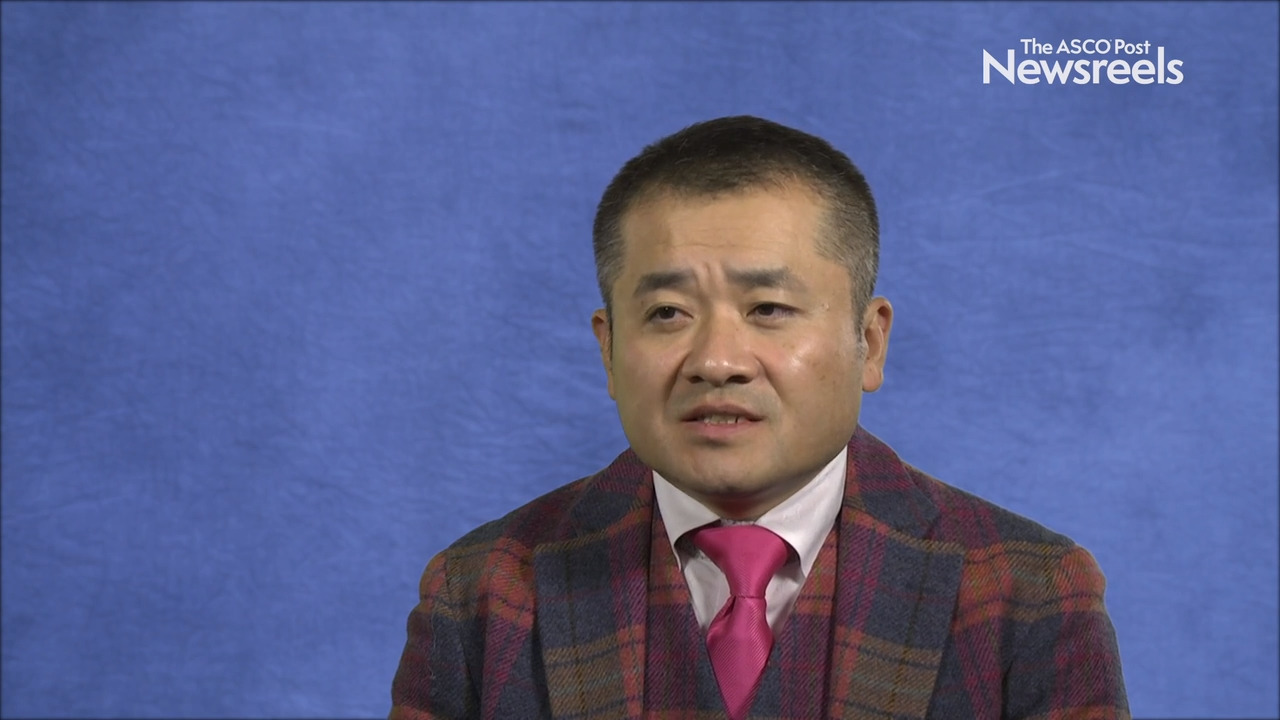Andrew D. Seidman, MD, and Richard G. Gray, MA, MSc, on Long-Term Aromatase Inhibitor Therapy
2018 San Antonio Breast Cancer Symposium
Andrew D. Seidman, MD, of Memorial Sloan Kettering Cancer Center, and Richard G. Gray, MA, MSc, of the University of Oxford, discuss a meta-analysis of individual patient data from 12 randomized trials including 24,912 women on the effects—in terms of recurrence and cause-specific mortality—of prolonging adjuvant aromatase inhibitor therapy beyond 5 years (Abstract GS3-03).
Roberto A. Leon-Ferre, MD, of the Mayo Clinic, discusses study findings on the effectiveness of oxybutynin in decreasing the frequency and severity of hot flashes (Abstract GS6-01).
Shom Goel, MD, PhD, of the Dana-Farber Cancer Institute, discusses preclinical data that suggest CDK4/6 inhibitors not only stop the growth of breast cancer cells, but also enhance antitumor immunity, a phenomenon that might help improve outcomes for people with advanced disease.
Andrew D. Seidman, MD, of Memorial Sloan Kettering Cancer Center, and Charles E. Geyer, MD, of Virginia Commonwealth University, discuss phase III study findings on ado-trastuzumab emtansine vs trastuzumab as adjuvant therapy in patients with early HER2-positive breast cancer with residual invasive disease after neoadjuvant chemotherapy and HER2-targeted treatment (Abstract GS1-10).
Shoshana M. Rosenberg, ScD, of Dana-Farber Cancer Institute, discusses her study findings on the lower quality of life associated with mastectomy, and the need for intervention and timely referrals to supportive resources, especially for underserved populations (Abstract GS6-04).
Shoichiro Ohtani, MD, PhD, of Hiroshima City Hiroshima Citizens Hospital, discusses study findings on extending anastrozole to 10 years, which led to higher rates of disease-free survival and distant disease–free survival (Abstract GS3-04).
